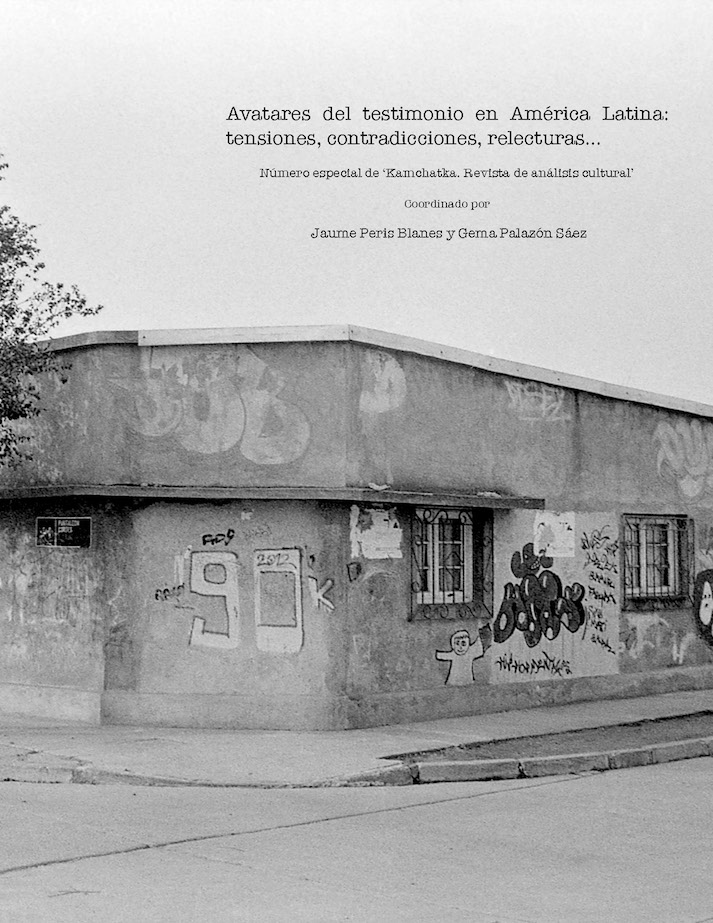'Si me permiten hablar': la subjetivación plural en el relato testimonial de Domitila Chungara
DOI:
https://doi.org/10.7203/KAM.6.7078Keywords:
testimonio, literatura testimonial, América Latina, género, feminismo, clase, Domitila Barrios Abstract
Abstract
Resumen:Este artículo aborda la cuestión de la subjetivación plural en el testimonio de Domitila Chungara Si me permiten hablar...¿Cómo se construye esa palabra que Domitila Chungara elabora como la voz de su pueblo? ¿Qué dice esta voz acerca del desencuentro discursivo que persiste entre, por un lado, quienes privilegian ciertas categorías subjetivas en nombre de la visibilidad de ciertas luchas y, por otro lado, quienes plantean un pensamiento interseccional del sujeto histórico oprimido?
Palabras clave: testimonio, Domitila Chungara, subalternidad y autoría plural
Abstract:This paper deals with the issue on plural subjectivation on Domitila Chungara’s testimony Si me permiten hablar... How does Chungara elaborate her voice as the people’s voice? What does this voice reveal about the multiple dimensions of subject, specially about race, gender and class?
Key words: Testimony, Domitila Chingara,Subalternity y Plural Author.
 Downloads
Downloads
 References
References
Bibliografía Dorlin, Elsa (eda.) (2009). Sexe, Race, Classe: pour une épistémologie de la domination. Paris, PUF. Galindo, María (2006). “Indias, putas y lesbianas, juntas, revueltas y hermanadas. ¡Un libro sobre MujeresCreando! Monasterios, Elizabeth (eda.). No pudieron con nosotras: el desafío del feminismo autónomo de Mujeres creando. La Paz: University of Pittsburgh/Plural: 27-59. Foucault, Michel (1994). Dits et écrits, IV,1954-1988. Paris: Gallimard. Gros, Frédéric (2010: 4ª ed.). Michel Foucault. Paris: PUF, Col. «Que sais-je?» Revel, Judith (2008). Dictionnaire Foucault. Paris: Ellipses. Viezzer, Moema (1978). Si me permiten hablar.... Testimonio de Domitila, una mujer de las minas de Bolivia . México D. F.: Siglo XX
Downloads
Published
How to Cite
-
Abstract4454
-
Artículo (Español)15523
Issue
Section
License
This journal provides an immediate free access to the content on the principle that freely make investigation available to the public, which promotes an increased global knowledge exchange.
Unless otherwise indicated, texts published in this journal are under the license Attribution-NonComercial 4.0 by Creative Commons. These texts may be copied, distributed and publicly communicated whenever the publication’s author and title are quoted and whenever they are not used for commercial purposes. In any case, intellectual property of the articles and its potential economic rights entirely belong to its authors.
The full license can be consulted on https://creativecommons.org/licenses/by-nc/4.0/. We encourage authors to disseminate papers published in Kamchatka. Journal of cultural analysis electronically, in institutional digital repository or in their websites.





